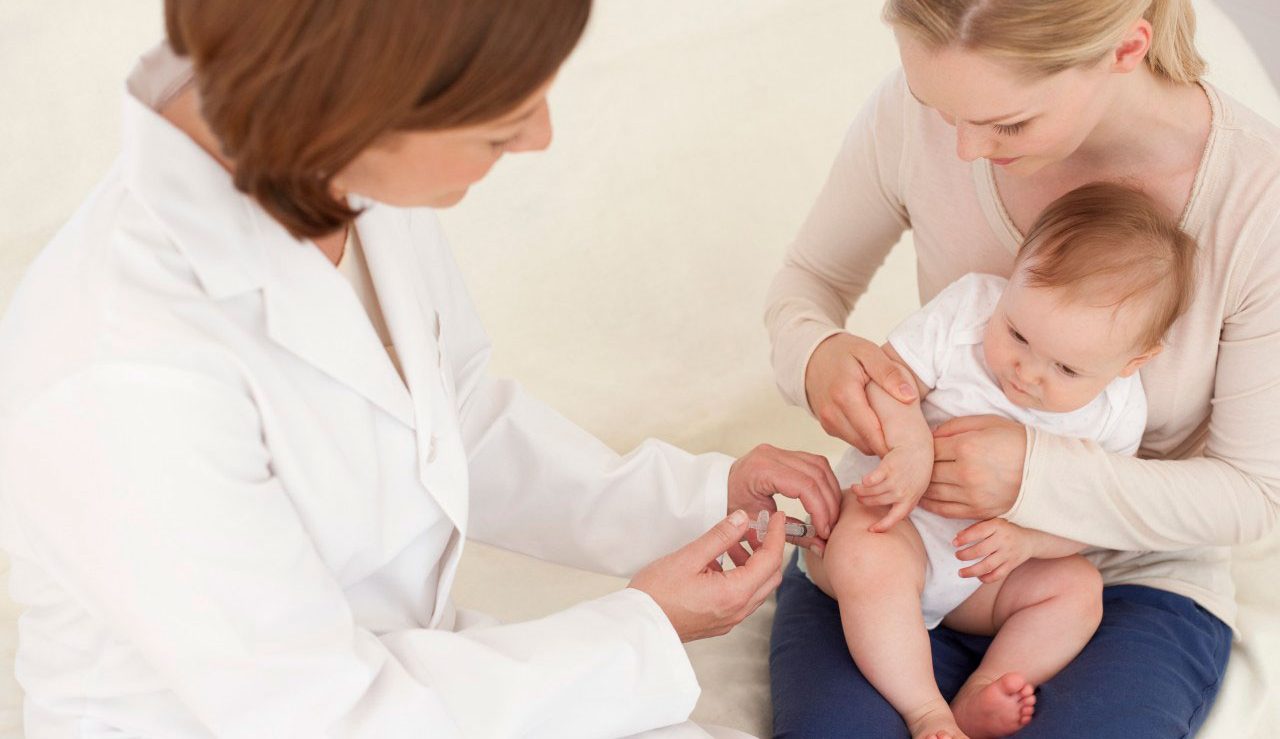Newborn Immunizations

Protecting you and your baby with these important immunizations.
On the last day she was a resident in medical school, Kathryn Edwards, MD, says, “I took care of a child who died.”
The child had haemophilus meningitis, a type of life-threatening bacterial infection. When she was in school, it commonly struck children.
Now, Edwards heads the Vanderbilt Vaccine Research Program and is a professor of pediatrics at Nashville’s Vanderbilt University. The memory has stuck with her.
YOU MIGHT ALSO LIKE: Common Newborn Tests
In 1985, a vaccine was introduced for the disease. Today it’s so rare, she says, medical residents don’t even know about it.
Vaccines save thousands of lives each year while preventing millions of illnesses, according to the Centers for Disease Control and Prevention (CDC). They work by stimulating the human immune system to develop antibodies — essentially, killer cells that ward off disease.
What vaccines do newborn babies need? At birth, only one is currently recommended, for hepatitis B. While it might seem strange to leave newborns unprotected, they initially have robust immune systems.
“When an infant is born, the baby has the same antibodies in the bloodstream as the mother,” Edwards explains. “If the baby is born at full term, the antibody levels in the baby are sometimes even higher than what they are in the mother.”
However, over the first several months of life, she says, “those antibodies virtually disappear, so that babies are left vulnerable to a number of infections.” For babies who are born prematurely, because most of the antibody is transferred in the last trimester of pregnancy, lack of antibodies can be a particular danger.
At two months, infants receive a series of shots to prevent a handful of diseases that once led to illness or death. They include another hepatitis B shot, along with the vaccines for rotavirus (often abbreviated RV); diphtheria, tetanus, and pertussis; the haemophilus influenza type B illness Edwards mentions; pneumococcus; and polio. The same series is repeated at four months, and then again at six months, minus the polio shot.
YOU MIGHT ALSO LIKE: Common Newborn Conditions
“Why are babies getting so many shots?” Edwards says. “Well, there are a number of vaccines because we have found good ways to prevent a number of serious diseases.”
It may seem scary to give a newborn shots. Yet it’s important to remember you’re actually protecting your baby from harm. Edwards notes that all vaccines are carefully administered in many trial studies under the conditions in which they’ll be given — for example, in conjunction with the CDC’s standard recommended vaccinations — and examined for safety and potential interaction with other infant conditions and medicines. So, she says, when parents ask for nonstandard vaccine schedules, they’re asking doctors to give vaccines in ways that haven’t been tested — and subjecting their child to risk.
A recent outbreak of the measles at Disneyland, she says, is an example of the ever-present danger of contagious illness. “When people aren’t vaccinated, then they get infected. Diseases are only a plane ride away.”
Edwards’ newest area of research: maternal vaccination. Researchers have discovered that vaccinating a mother during the last few months of pregnancy confers protection to her fetus. It’s “a fascinating area, one that we’ve been very much involved in” at Vanderbilt, Edwards says.
During the H1N1 (swine flu) epidemic of 2009, for example, pregnant women who received vaccinations were able to confer that antibody to their babies. “It’s kind of what we call a twofer — two for the price of one,” she says. “By vaccinating mother, we can protect the baby.”
Research is particularly active, Edwards says, for respiratory syncytial virus, which leads to pneumonia in infants, and Group B streptococcus, a common cause of sepsis and meningitis within the first few days of life.
In all, the group of vaccines given at and following birth is a testimony to the diseases medicine has nearly eliminated in the twentieth century, she notes. “Forty years after the day that little girl died, I still remember how painful that was for me and for her parents.” She wishes she could have asked that family, 40 years ago, whether they would have liked the vaccine that now prevents haemophilus meningitis.
“These diseases haven’t gone away. The bacteria are still there, and we need to prevent children from getting them.”
Updated:
April 07, 2020
Reviewed By:
Janet O’Dell, RN